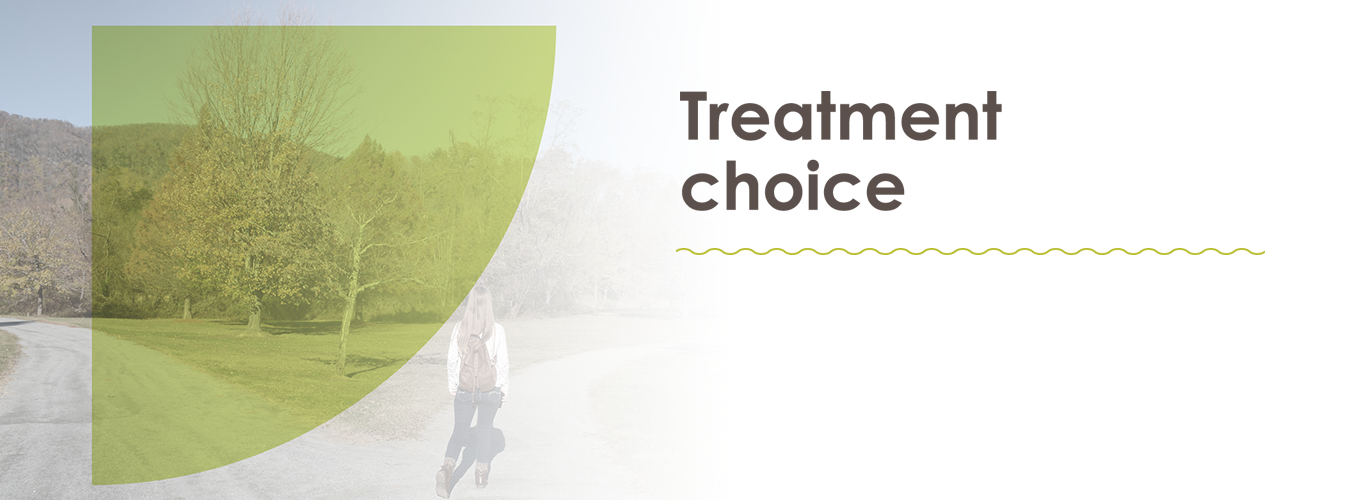
Treatment Choice
Antipsychotic medication is usually the first line of treatment for psychosis and clinical guidelines report clear benefits in terms of symptom reduction. However, there is an over-reliance on such medication within mental health services, with antipsychotics often being the only treatment that is offered, despite NICE guidelines suggesting that psychosocial interventions such as CBT and family intervention should also be offered. There is also evidence that many service users choose to refuse or discontinue their pharmacological treatment, and recent evidence suggests that the efficacy of such medication has been overestimated while the severity of their adverse effects have been underestimated. Therefore, facilitating and promoting treatment choice for people with psychosis is a priority.
Eleanor Longden’s TED Talk illustrates the importance of offering Treatment choice to people with psychosis both about treatments they are offered and the ways in which their experiences are understood.
CBT As An Alternative To Antipsychotic Medication
At The Psychosis Research Unit, we have conducted the world’s first clinical trial examining CBT for people with psychosis who choose not to take antipsychotic medication; initially we conducted an open trial (Morrison et al, 2012), and subsequently we conducted a RCT (Morrison et al.: Cognitive therapy for people with schizophrenia spectrum disorders not taking antipsychotic drugs: a single-blind randomised controlled trial. The Lancet 2014:dx.doi.org/10.1016/S0140-6736(13)62246-1). The ACTION Trial showed that CBT was a safe and acceptable alternative for people who choose not to take antipsychotic medication. Given that approximately 50% of people who meet criteria for a diagnosis of schizophrenia choose not to take antipsychotics, this has a significant impact on evidence-based choices available to people.
The recent NICE guidelines (CG155 and CG178) recommend that if people with psychosis and schizophrenia wish to try a psychological intervention alone, this could be trialled over the course of 1 month, mostly on the basis of equivocal evidence regarding psychological interventions when compared with antipsychotic medication and the cost-benefit ratio of antipsychotics given significant adverse effects and the size of placebo effect. Our clinical trials are the first to examine this issue from an evidence-based perspective, which will facilitate treatment choice.
We are currently conducting the world’s first trial to compare CBT with antipsychotic medication and the combination of the 2 treatments in a 3-arm RCT in adults with psychosis and schizophrenia (COMPARE), which will enable people with first episode psychosis to make more informed choices about the treatments that they are offered. We are also conducting a definitive clinical trial (FOCUS) to determine whether CBT works for people with what is described as ‘treatment-resistant schizophrenia’ (in practice, this means people who have not benefitted fully from a medication called Clozapine).
Service Users’ Preferences And Priorities
In order to inform our knowledge of treatment choices, we have also conducted research examining the preferences and priorities of service users with psychosis. This has included both a Delphi study seeking consensus from experts by experience (Byrne and Morrison, 2014) and a systematic review of the literature (Byrne et al, 2010).
Alternative Talking Therapies
While many people with psychosis do receive benefit from CBT, it is clearly not a panacea and does not work for everyone. Therefore, we also engaged in developing and evaluating alternative psychological approaches. This has included a clinical trial of metacognitive therapy MCT for psychosis, which showed this to be safe and acceptable (Morrison et al., 2012). Sophie Parker and colleagues have recently completed a randomised controlled trial of attention training for people with psychosis IACT.
